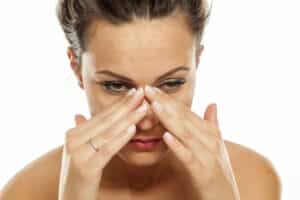
Flying and Your Sinuses
Researchers interested in this very question conducted a large-scale study that observed two particular details of flight attendants: one, how often they flew and, two, how often they exhibited sinus symptoms such as sneezing, coughing, and nasal discharge. Not surprisingly, their conclusion was that the more a person was in the air, the more symptoms they displayed.
Is it Really That Simple?
Although the initial details of research may seem conclusive, there are other factors that we must consider when determining the extent of the risks associated with flying. For example, where did the flight attendants visit after reaching their destination? What were the potential contaminants in the environment there? How well did they sleep and eat? What was their general health like? These are all factors that could also affect the frequency and severity of sinus symptoms after flying.
What You Need to Know
What we can surmise is that flying does pose a risk to the sinuses. The particular reasons why include:
- Cabin pressure (biometric pressure) in an airplane may introduce bacteria into the sinuses more easily than the air pressure on the ground.
- The air within the cabin of an airplane is dryer than natural environmental air. This can significantly diminish the mucous membranes that protect the sinus cavity and nasal passages from pathogens.
- Airplane cabin air is recirculated. While there are filters in place to decrease the flow of debris and microbes through the cabin, there is a likelihood that multiple contaminants may remain.
What You Can Do to Avoid Sinus Problems Related to Flying
It’s natural to want to decrease your risk of getting sick after flying. According to studies, there are certain steps that may help achieve this:
- Practice nasal and sinus cleansing beginning a few days before a flight, and continue a few days after flying. This can include a Neti Pot or other form of gentle nasal irrigation to remove potential irritants from the sinuses.
- Pack hand sanitizing wipes on your carry-on and use them periodically. Always sanitize your hands before touching your face.
- When traveling, take measures to ensure that you eat and sleep well.
- Drink plenty of water to aid your body in moistening the sinuses and nasal cavities and flushing toxins.
Are You Plagued by Chronic Sinusitis?
Some people are simply more prone to chronic sinus issues. If you are one of them, we may be able to help you achieve a significant reduction in your symptoms. Contact the St. Louis Sinus Center in St. Louis 314-450-7720 or Festus (314-450-7720) to schedule a consultation.

